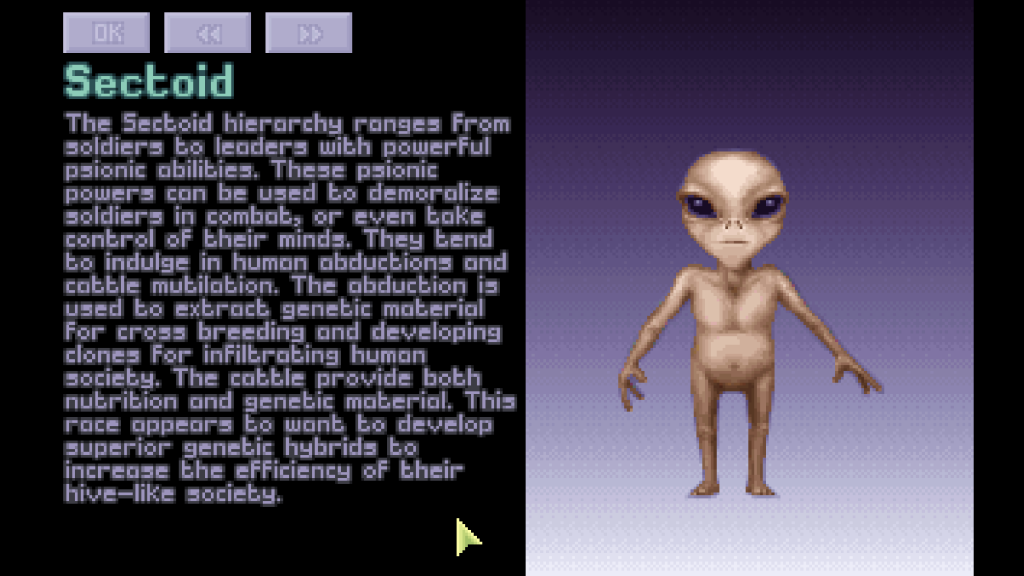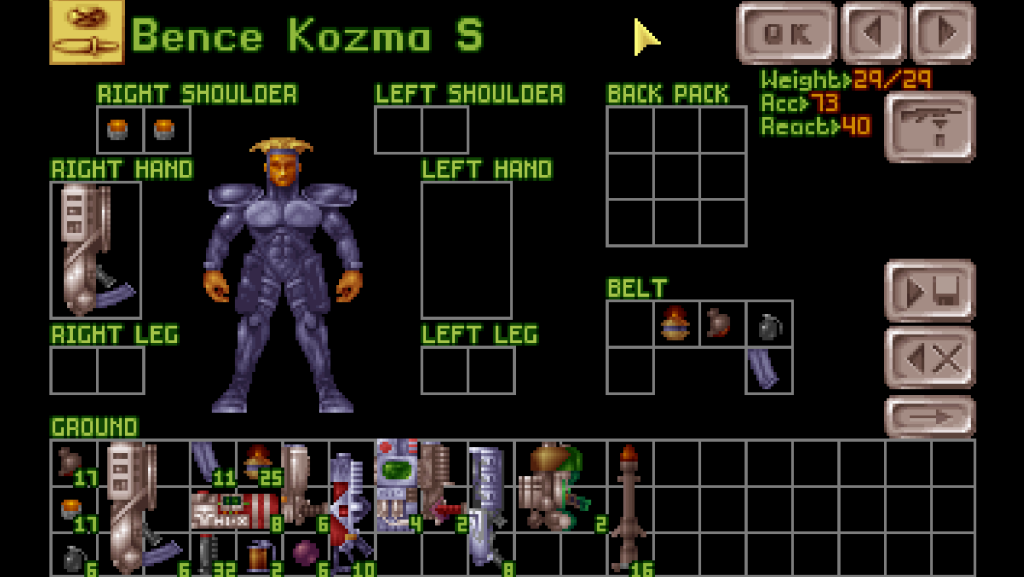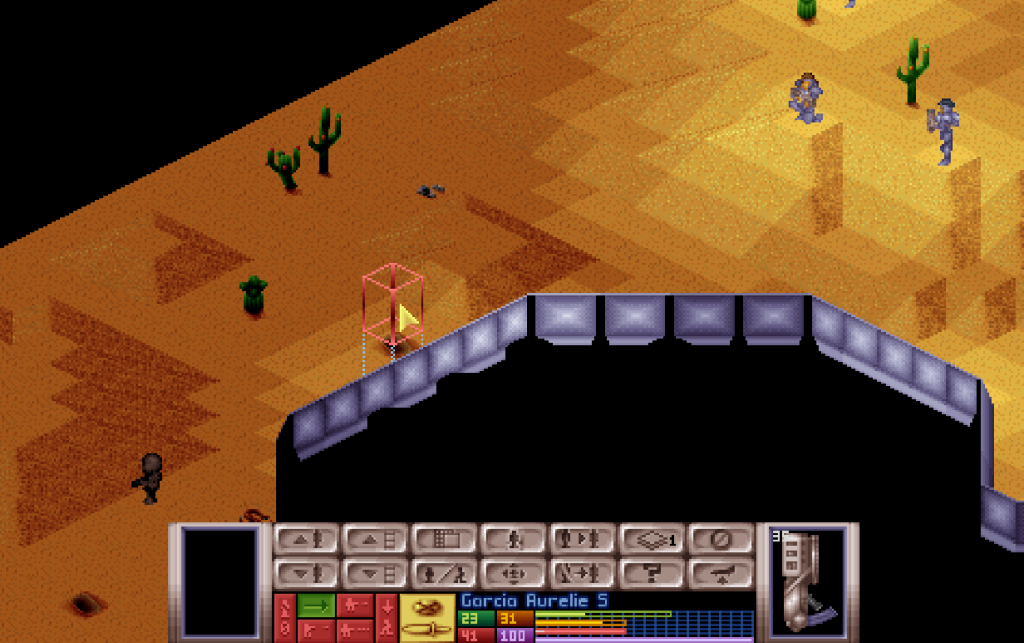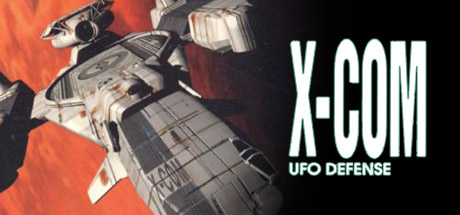X-COM: UFO Defense (or UFO: Enemy Unknown) was the first game in the X-COM series, and was developed by Mythos Games and published by MicroProse. The game has received many awards and sparked many other companies to follow in their footsteps to the point where X-COM like games are practically their own genre. But how did this game grow so popular, and why?
For those who don’t know about the game, in UFO Defense, you are tasked with stopping the alien invasion on earth. It sounds very simple and easy… yeah? With your multiple bases located around the globe you may build rooms for those bases, purchase items, and hire soldiers, engineers, or scientists. After completing research tasks using different items you find from the aliens, your scientists can unlock new things for you to create, giving your engineers the ability to create powerful equipment for your soldiers or fighter craft.

After spending some time working in your base, from time to time your radars will detect UFOs flying past your area, which you can intercept using your aircraft. After shooting down a spaceship and sending soldiers over to the crash site, you will have to command every action that you soldiers makes, every step that each soldier takes in order to kill the remaining aliens that survived the crash. As the alien technology is more advanced, succeeding is difficult, but the reward of collecting their technology is worth it.
This game was originally going to be a sequel to their game Laser Squad (which so happened to be inspired by the developers’ older series, Rebelstar). These games laid the first bricks for the Battlescape part of UFO Defense. However, the whole base building or “Geoscape” part of UFO Defense seems to be fully unique. I suppose that this may be one of the reasons that X-COM blew up – because they added a whole other base management concept to Laser Squad that gave it so much more strategy.

Some people compare UFO: Enemy Unknown to its reboot series, However, I find the new XCOM: EU and XCOM 2 to be quite different to the old X-COM games. Whilst the games share the same concept of commanding soldiers on the battlefield to kill aliens and building up a base, the games have their differences too. The number of soldiers you are able to send on a mission is four and can be upgraded to six. That’s it. Compared to UFO Defense having 14 soldiers allowed on the default ship and that being upgradable to 26 soldiers, that is a massive difference. However, soldiers are also weaker in UFO Defense, with very random stats. This is different to XCOM: EW and XCOM 2 because in those games you unlock new abilities when your soldiers are promoted, making them more powerful, on top of the stat changes they already get when promoted. In my opinion, the old X-COM series is more about upgrading your equipment and expending troops for the greater good, whereas the newer XCOM games are more focused on building up an elite team with powerful abilities that can quickly sweep any aliens. In XCOM you are crafting a team. In X-COM you are fighting a war, trying to win against the massive alien threat with your flimsy conventional weapons.

This is obviously not the only difference between the games though – of course, the graphics are extremely improved in the reboot series compared to the original series. Additionally, X-COM gives you so much more freedom. There are so many different strategies on both the Battlescape and Geoscape you can invent – let me give you an example. A soldier throws a rocket launcher around a building for the soldier standing around that corner to use to blow up a wall, so that somebody else can transport an ammo clip to the soldier inside of the building, so that they can reload and shoot an alien. This is an idea that would be well beyond impossible in XCOM: Enemy Unknown as only people in the heavy class can use rocket launchers & they cannot be thrown across the place. There are little restrictions to soldiers in X-COM; there are no specific promotion classes, nothing is restricted behind promotions, and all items can be used by any soldier (as long as they have been researched/unlocked). If you really wanted to, you could make somebody akimbo auto-cannons and fill their inventory with primed grenades. And while this seems dumb, I feel like the lack of restriction in X-COM makes for some really fun moments.

As with all games, X-COM has its own flaws. It’s graphics, while maybe good at the time of the games release, are quite outdated nowadays and can sometimes make it hard to gather what is actually happening. There is an 80-item limit for the Troop Transporters, meaning that you have a small selection of equipment that you can bring to each mission. The controls are quite difficult to get used to, and navigating the different menus can take a while to get good at. But the biggest issue that I have with the game is the bugs. There are a lot of bug issues across the game to the point where I could write a 2000 word article about them all. The biggest bug issue in the game though would be the game difficulty bug, where the game would always be locked to beginner mode after you complete the first mission, regardless of what difficulty you chose at the start of the game. Luckily, there is a community modded version of the game called OpenXcom that fixes most of these issues, while also giving you access to mods for the game. I am in love with XCOM: UFO Defense. After playing it, I can’t help but feel like the unique choices in the game’s development makes the game feel more open than the reboot series, letting you go free to do whatever you want. This game has inspired many others to make their own similar games, so it is quite evident that the game is awesome. Honestly, I understand why people have the opinion that the original X-COM series is better than the remade XCOM series – after all, the reboot XCOM is much more restricting and its gameplay is quite a bit different. While I don’t think the older series to be better, I still believe that X-COM: UFO Defense is one of the best strategy games ever.
